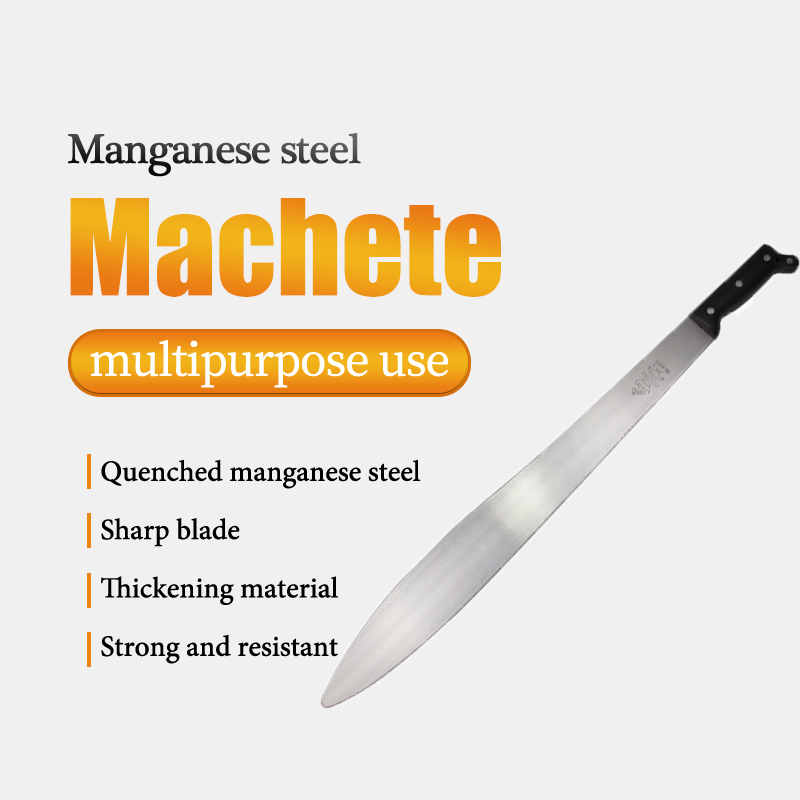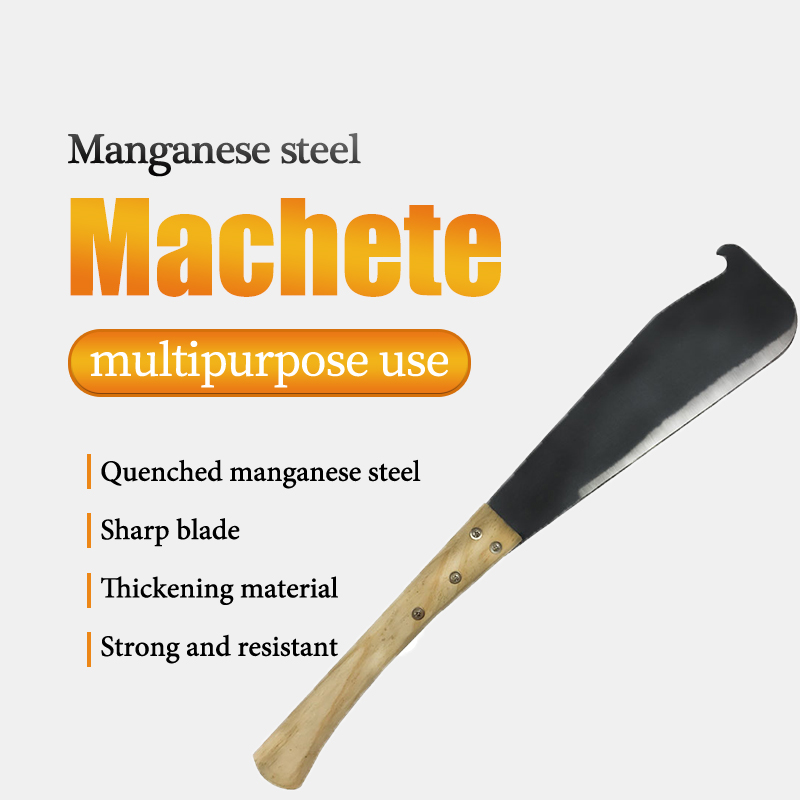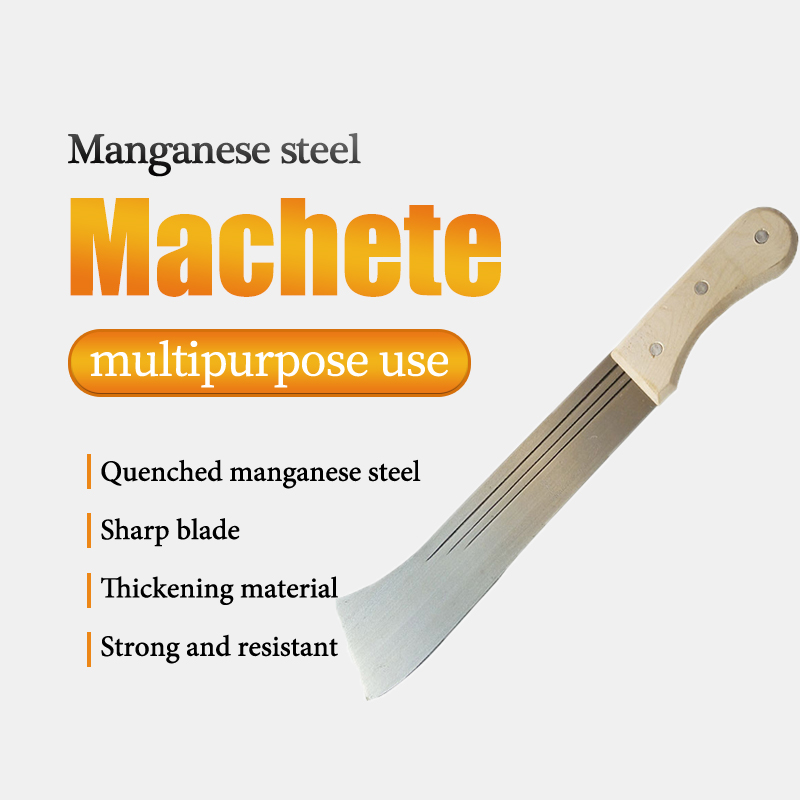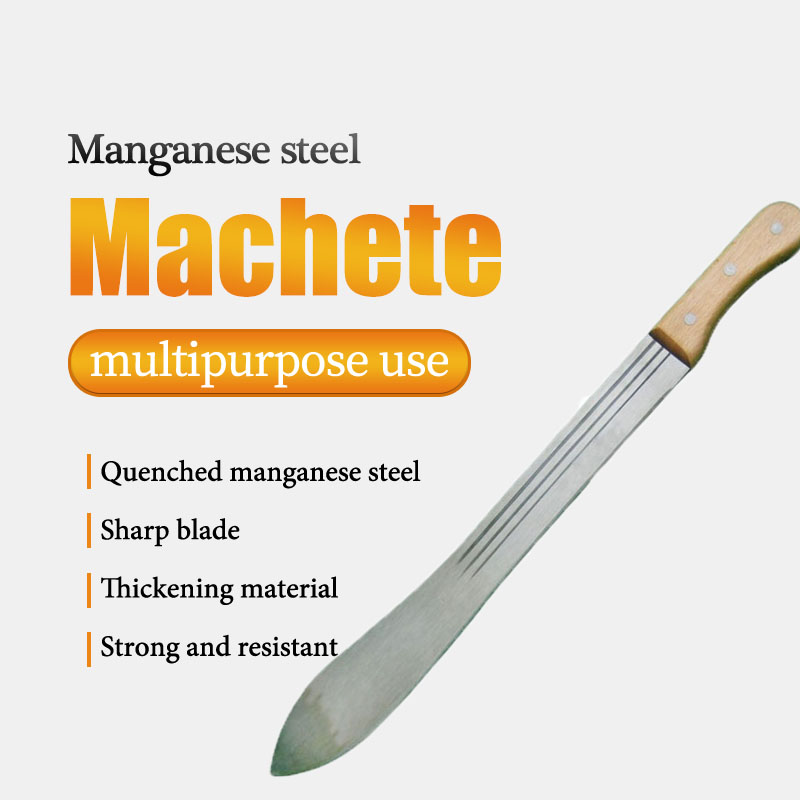News
A machete is indeed classified as a knife, but it is very different from the small knives commonly found in kitchens.
A machete has a broad, heavy blade, usually 12 to 24 inches long, designed for chopping and clearing rather than precision cutting.
Unlike a pocket knife or chef’s knife, it functions more like a hybrid between a knife and an axe, making it extremely versatile for farming and outdoor work.
Farmers often use machetes for cutting thick vegetation, harvesting crops, and even splitting wood.
Its size and weight give it the power to handle tough materials that ordinary knives cannot.
So yes, it is a knife, but in a much larger and more functional category, ideal for heavy-duty agricultural use.

Yes, high quality machete is considered a knife because it falls under the broad category of bladed tools.
However, its design sets it apart from regular knives.
A machete’s blade is thicker, longer, and heavier, usually made from carbon or stainless steel for durability.
While most knives are intended for cutting food, small tasks, or utility work, the machete is built for clearing brush, chopping sugarcane, or dealing with farm work in rugged environments.
It has become an essential agricultural tool across Africa, Asia, and Latin America.
So although technically it belongs to the “knife” family, it serves a very different role than a kitchen or hunting knife.
For farmers, the machete is more like a dependable all-purpose blade that combines power, reach, and toughness.
The correct spelling is “machete knife.”
The word “machete” comes from Spanish, derived from “macho” meaning sledgehammer, referring to its strength and chopping ability.
Many people misspell it as “machate” or “masheti,” but the correct and universal spelling is “machete.”
This is important for anyone buying tools online or searching for product information, as a spelling mistake could lead to the wrong results.
Farmers, especially those learning English, should remember the proper spelling to avoid confusion when ordering farm tools.
In professional markets, manufacturers and suppliers always use “machete” as the standard term.
Therefore, knowing the correct spelling not only helps in communication but also ensures you find the right product when looking for reliable farming knives or accessories.

A machete knife is used for a wide range of agricultural and outdoor tasks.
Farmers rely on it for clearing weeds, cutting grass, chopping sugarcane, and harvesting crops such as bananas or maize.
Because of its size and strength, it can also be used for pruning trees, opening coconuts, or processing animal feed.
In many rural households, a machete doubles as a survival and utility tool, useful for splitting firewood, preparing land for planting, or even household chores like cutting rope or bamboo.
The machete’s versatility is why it is so popular across Africa and other agricultural regions.
It saves time, reduces physical effort, and replaces multiple tools in daily farm work.
Simply put, it is a farmer’s most reliable all-purpose cutting tool.
Yes, china machete can be sharpened with a knife sharpener, but not all sharpeners are suitable.
Due to the machete’s long and wide blade, small kitchen knife sharpeners are often too limited.
The most effective methods are using a sharpening stone (whetstone), a file, or a specialized machete sharpener.
Farmers often prefer simple hand files, as they are easy to carry and can quickly restore a sharp edge in the field.
Keeping a machete sharp is very important because a dull blade requires more force, increases fatigue, and can even cause accidents.
Regular sharpening ensures smoother cuts, faster farm work, and longer blade life.
Choosing the right tool for sharpening will keep your machete in top condition for daily agricultural tasks.
Beyond farming, machetes are widely used for survival, hunting, and outdoor activities.
In rural areas, people rely on machetes for cutting paths through dense vegetation, building shelters, and processing firewood.
Hunters may use them for clearing shooting lanes or butchering game.
In some communities, a machete serves as a household utility knife for tasks like cutting meat, chopping coconuts, or preparing building materials such as bamboo.
Its role as a multi-tool makes it indispensable for anyone living close to nature.
Unlike specialized farm tools that only serve one purpose, a machete adapts to many situations.
This is why it remains one of the most trusted and valuable tools for farmers, hunters, and outdoor professionals worldwide.

Machetes are generally legal in the United States, but regulations vary by state and city.
In most rural areas, they are considered farm or outdoor tools and are not restricted.
However, in urban settings or public spaces, carrying a machete may be restricted under local weapons laws.
The key factor is how and where the wholesale machete is used.
Farmers, landscapers, and outdoor workers can legally own and use machetes for professional tasks.
Problems only arise if someone carries it as a weapon in a prohibited place.
Anyone traveling with a machete should check local laws to avoid legal issues.
For agricultural purposes, especially in private farms or rural areas, owning and using a machete is completely legal and accepted.
In the Philippines, the traditional machete is called a bolo machete.
The bolo has a distinctive design, with a slightly curved blade that widens near the tip, giving it extra chopping power.
Filipino farmers use it for clearing vegetation, cutting rice stalks, and other agricultural work.
The bolo is also deeply tied to Filipino culture and history, as it has been used for centuries in farming, daily household chores, and even self-defense.
Outside the Philippines, bolo machetes have become popular worldwide because of their efficiency and unique style.
Many manufacturers produce bolo machetes for export, making them available to farmers and outdoor professionals across Africa and beyond.
Its design shows how different regions adapt the machete to their local needs.

About us:
Dingzhou Gemlight Cutting Tools Co., Ltd.
With over 30 years of manufacturing expertise and 20+ years of export experience to Africa, Southeast Asia, and Latin America,
Gemlight is your trusted partner in agricultural and machete tools.
We specialize in producing high-quality machetes, shovels, hoes, pickaxes, and sickles, with a strong focus on durability and performance.
Factory based in Baoding, Hebei, China, we ensure fast delivery, competitive pricing, and customized OEM/ODM solutions.
Trusted by customers in 50+ countries.
Wholesale inquiries welcome.
E-mail: ganzhedao@gmail.com Whatsapp: +86 139 3323 5088

 Sitemap
Sitemap